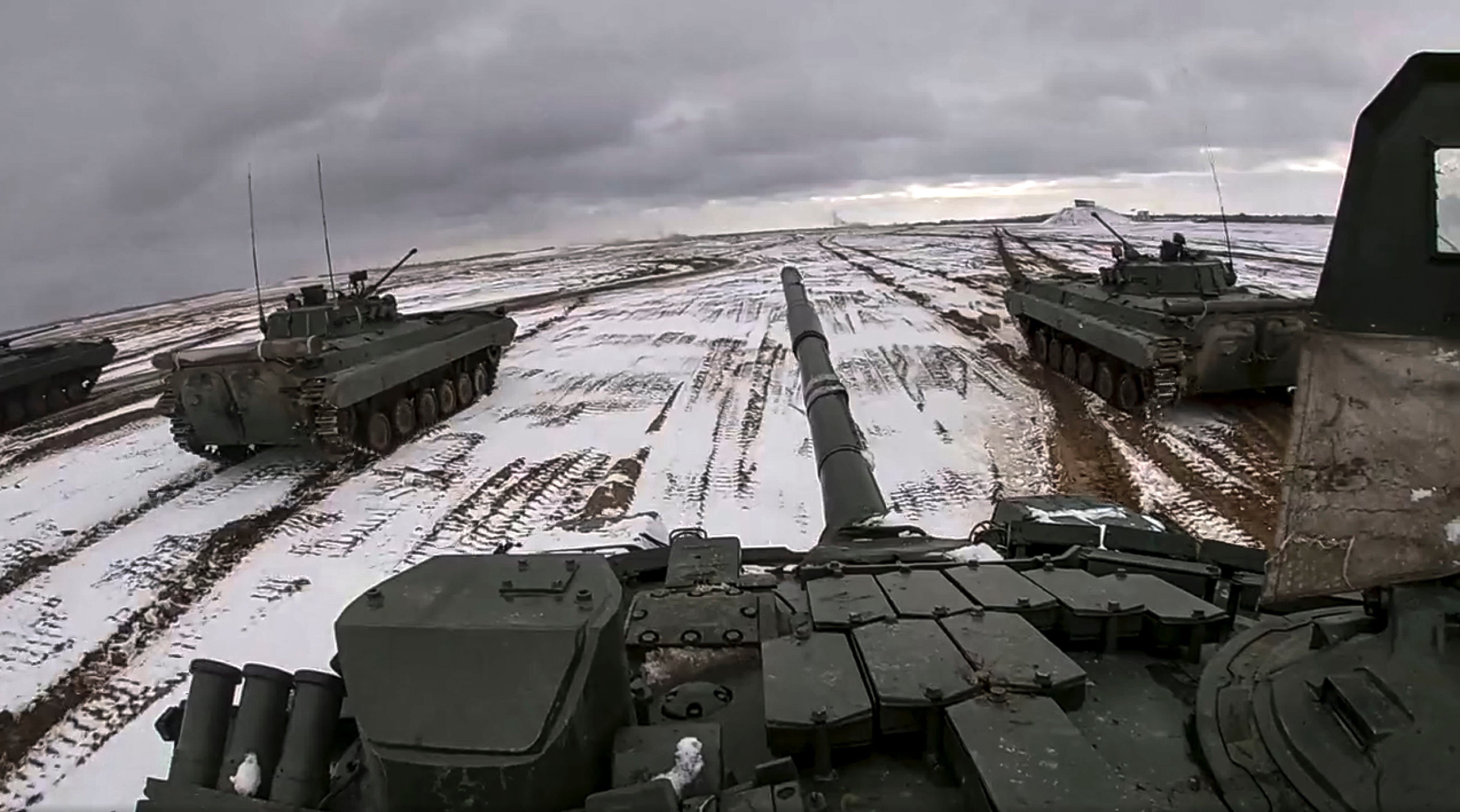Russia ‘70% ready’ to invade Ukraine and will move in heavy equipment this month, US claims
Ukraine’s capital Kiev could fall within a couple of days in the event of a Russian invasion, US officials say

Your support helps us to tell the story
From reproductive rights to climate change to Big Tech, The Independent is on the ground when the story is developing. Whether it's investigating the financials of Elon Musk's pro-Trump PAC or producing our latest documentary, 'The A Word', which shines a light on the American women fighting for reproductive rights, we know how important it is to parse out the facts from the messaging.
At such a critical moment in US history, we need reporters on the ground. Your donation allows us to keep sending journalists to speak to both sides of the story.
The Independent is trusted by Americans across the entire political spectrum. And unlike many other quality news outlets, we choose not to lock Americans out of our reporting and analysis with paywalls. We believe quality journalism should be available to everyone, paid for by those who can afford it.
Your support makes all the difference.Russia has assembled 70 per cent of the military power it needs to launch a full-scale invasion of Ukraine and is preparing to move heavy-duty equipment to the border, US officials have said.
The ground is expected to reach peak freeze in mid-February, US officials said on Saturday, allowing for off-road mechanised transit by Russian military units.
Such conditions would continue until the end of March, the unnamed officials told Reuters.
The officials also said the number of Russian battalion tactical groups in the border region between Russia and Ukraine has risen to 83 from 60 in the last two weeks, and that 14 more are in transit.
The US officials, however, did not provide evidence to back up their estimates of Russia’s forces, saying the information came from confidential intelligence reports.
From mid-January, Russia has been increased its armed presence along the Ukrainian border. The US alleges that over 100,000 Russian troops are now amassed there, sparking international concerns over a possible invasion.
Russia says it is not planning an invasion but could take unspecified military action if its security demands are not met. Those include a promise that Ukraine will never be allowed to join Nato, a demand both Washington and Nato itself have said is unacceptable.
Washington believes Russia may choose other options than a full-scale invasion, including a limited incursion, and does not believe president Vladimir Putin had made a final decision — meaning there is still the possibility of a diplomatic solution to the present crisis.
But they said Mr Putin is putting in place a force that can execute all scenarios.
A full-scale invasion would cause major casualties, one of the officials told the news agency. They estimate that Ukraine could suffer 5,000 to 25,000 troop casualties, while Russia’s troop casualties could be between 3,000 and 10,000, and civilian casualties could range from 25,000 to 50,000.
A full invasion would also prompt the flight of millions of refugees and internally displaced persons in Europe, Washington believes.
And if Russia were to invade, the capital Kiev, could fall within a couple of days, the US officials said.
The US deployed an additional 2,000 soldiers in Ukraine after new satellite images showed the extent of the Russian military buildup along Ukraine’s borders.
While Ukraine has been downplaying the fears of a Russian invasion, the US and Russian ambassadors faced off in a UN Security Council meeting recently and the American government has been warning Russia against taking “provocative” steps.
Other western nations have also intensified their efforts to defuse the situation. French president Emmanuel Macron is scheduled to meet with Mr Putin on Monday before travelling to Kiev to meet with Ukrainian president Volodymyr Zelensky.
German chancellor Olaf Scholz will also be taking a trip after a meeting at the White House. Earlier, prime minister Boris Johnson also visited Kiev.
Join our commenting forum
Join thought-provoking conversations, follow other Independent readers and see their replies
Comments